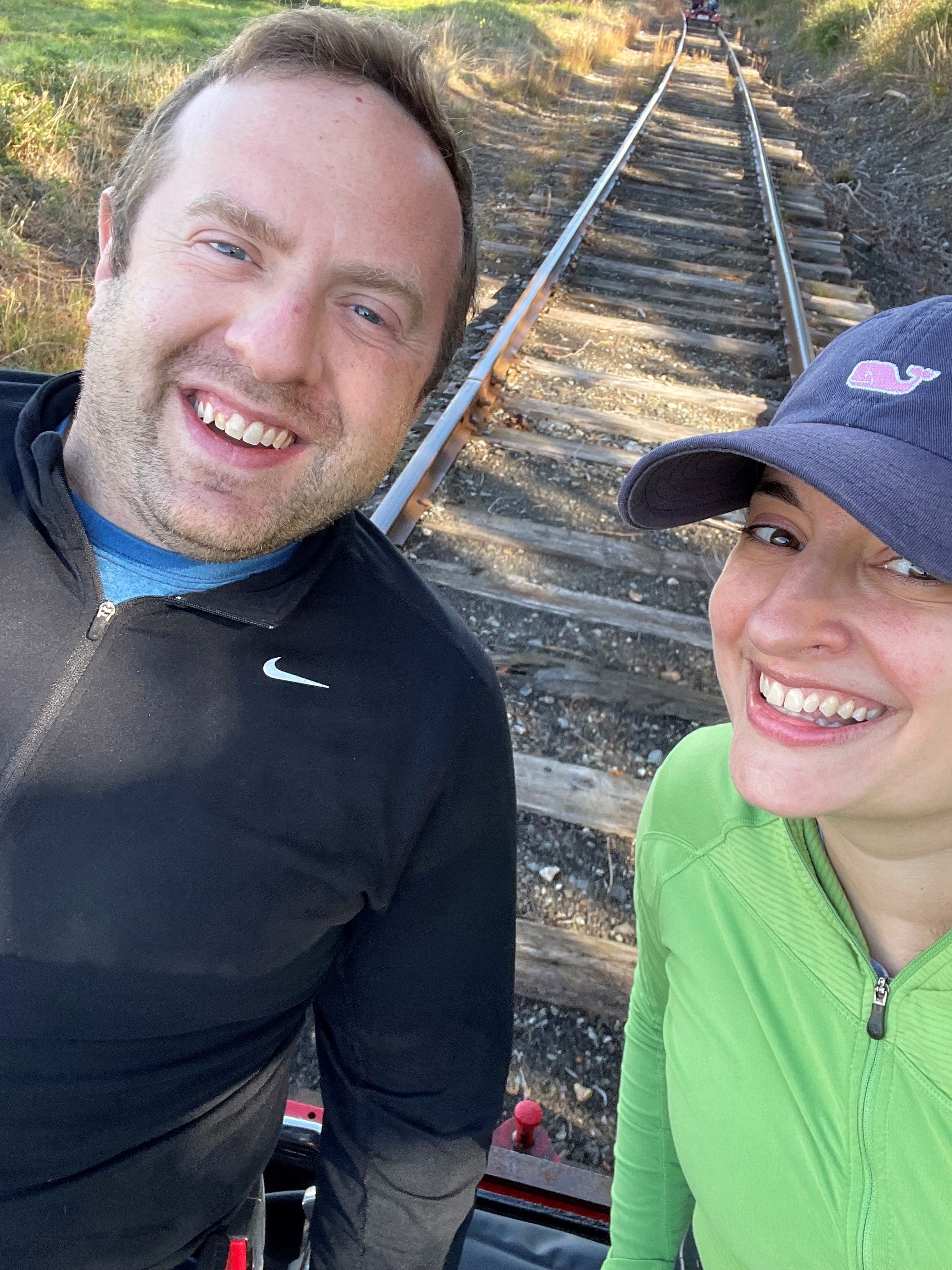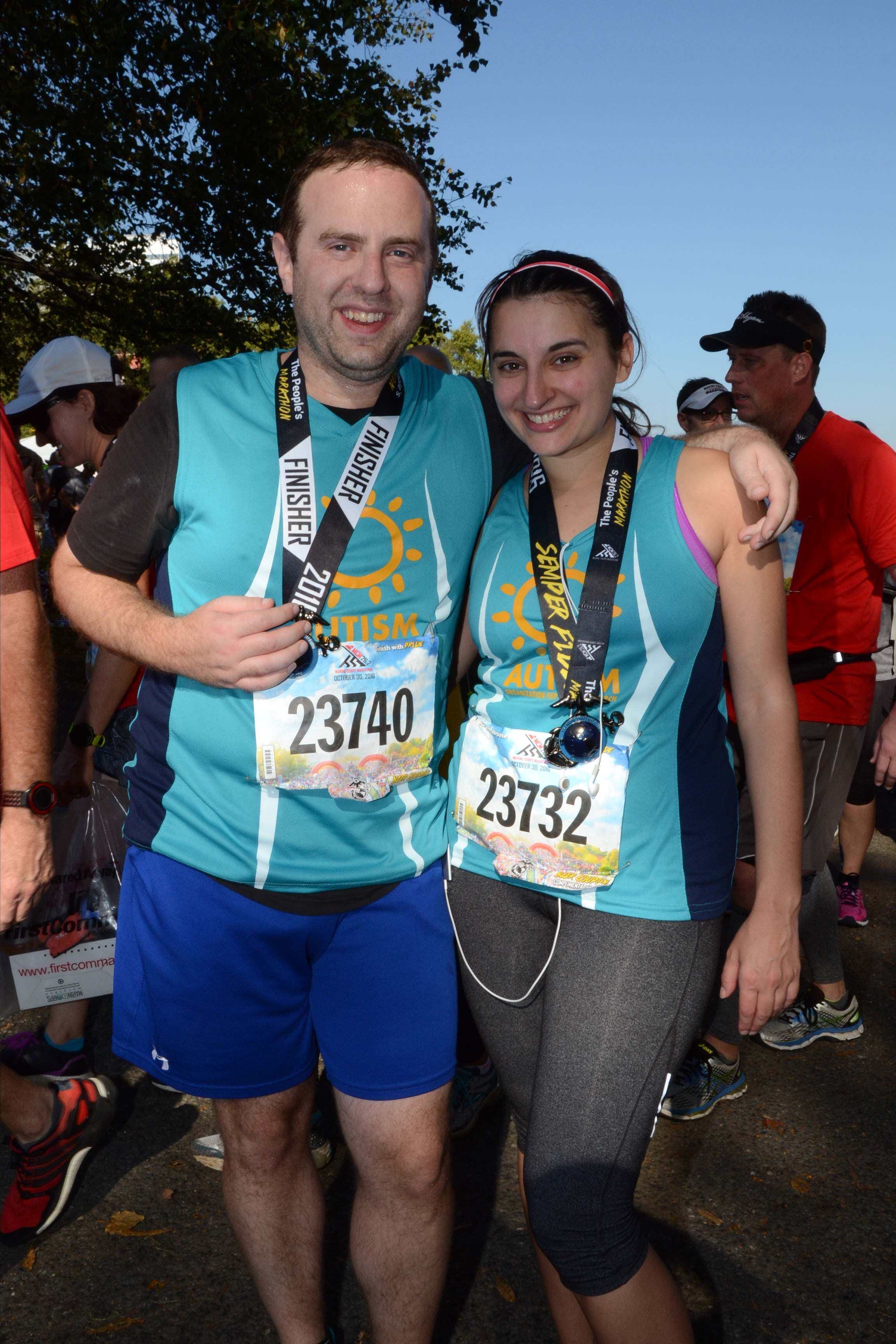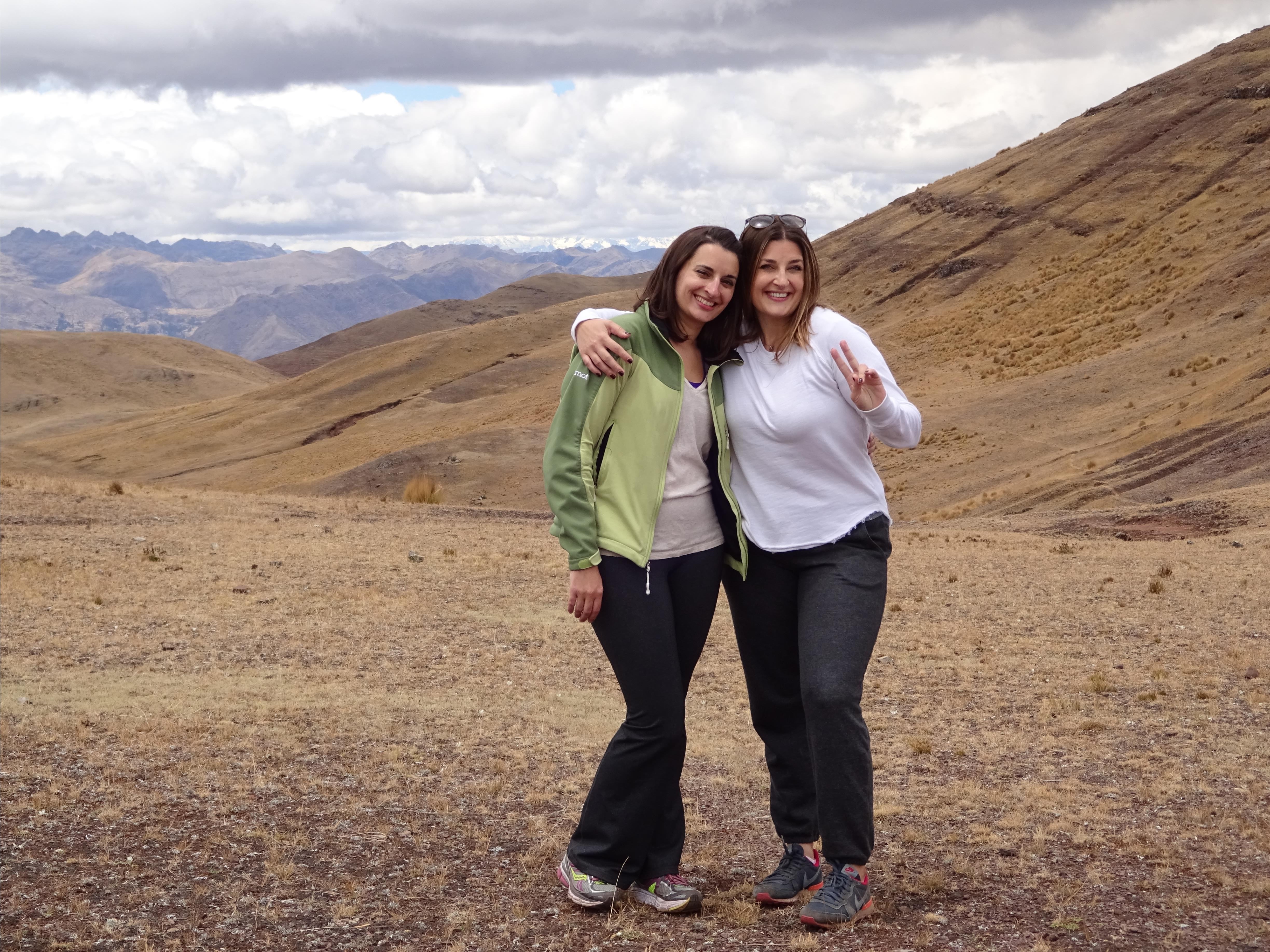Crossover: Former star figure skater finds niche in family law
Articles
Attorney Spotlight
View more from News & Articles or Primerus Weekly
By Brian Cox
“It’s been a wild ride,” says attorney Rebecca Frino about her journey to a career in family law. “Life takes you to funny places.”
If someone had told 8-year-old Rebecca that she would one day be a successful attorney practicing family law at a New Jersey law firm, she wouldn’t have believed them. Even at that young age she had a fascination with science and her future plans were set on becoming a brain surgeon, a dream she carried all through high school and into college at the University of Minnesota where she earned a degree in neuroscience.
The neuroscience program at the University of Minnesota encouraged undergrads to do research, which was uncommon and was one of the reasons Rebecca had chosen the school. She embraced the expectation by working in a neuroendocrinology lab where her focus centered on biological clock rhythms. Her senior thesis, however, explored neural regeneration in stroke patients, a subject that held particular personal interest for her after her grandfather suffered a massive stroke that left him partially paralyzed for the remainder of his life.
It was while she was working in the lab that a colleague first recognized a latent tremor in Rebecca’s right hand. She had never noticed it before, but the tremor was significant enough that a career centered on handling a scalpel was no longer an option.
Suddenly, her childhood ambition of being a neurosurgeon was cast in a stark light of doubt.
“Sometimes life just smacks you in the face,” says Rebecca. “But as my grandfather used to say, when life gives you lemons, you make limoncello.”
Despite being only 20, it was not the first time Rebecca had had to confront a life-altering decision.
Born with a birth defect that affected her left side and caused Rebecca to be severely pigeon-toed, an orthopedist told her mother that she would likely require leg braces. Rebecca’s mother, however, had other plans and wedged her 4-year-old daughter’s feet into a pair of figure skates and introduced her to an ice rink.
For the next decade, Frino spent countless hours on the ice, training and developing into a national and internationally competitive ice dancer. The sport infused her with confidence while demanding intense commitment and undivided focus.

“I was an incredibly shy child. I was known to hide behind my mother,” recalls Rebecca. “The ice was the one place that felt like home; it’s where I could open up and be someone else.”
Rebecca typically trained two hours a day before school, getting on the ice by 6 a.m. Several times a week, she trained after school as well as on Sundays spent as much as five hours on the ice. Her coaches – Susie Kelley and Andrew Stroukoff – had competed in ice dancing at the 1976 Olympics.
“I was very fortunate to have the most spectacular skating coaches,” she says. “They became a second set of parents to me. They were people I looked up to, people who inspired me.”
In 1998, she and her partner, Jake Villaneuva, were ice dancing champions at the U.S. Junior Figure Skating Championship. The following year, they took silver.
Rebecca says her parents modeled the discipline and motivation that competing at such a high level required and were incredibly supportive of her efforts.
“I’m fortunate to probably have the greatest family on the planet and I don’t say that lightly,” says Rebecca, who is the third of four daughters. “It’s something I’m incredibly lucky to have had. I have the two greatest parents, who are absolutely rocks.”
Her father was a lawyer, and her mother was “CEO” of the family, somehow finding time to bead Rebecca’s skating costumes and drive her to practice and competitions up and down the Eastern seaboard.
“As long as you were disciplined, tried your best, and got good grades, my parents gave you the room to succeed,” says Rebecca.
When she was 14, Frino was confronted with a choice: If she wanted to continue down a path that led to being a professional figure skater, she would soon have to leave home to train elsewhere and devote herself to the sport. Any plans to be a neurosurgeon would have to be set aside.
“It was a painful decision because skating had been something that was part of my identity for so long,” says Rebecca, adding it was also difficult to leave her coaches.
Ultimately deciding that she did not want to be a professional figure skater, Rebecca left the sport and turned her full attention to school. While it was not easy to walk away from figure skating, Rebecca says her parents helped her make the pivot.
“I was taught by my parents, that it’s not how you fall, it’s how you get up,” she says. “It was the exact same lesson my coaches taught me. They may not have been happy when I fell, but you better damn well get up and go do it again – because that’s what it was about. You’re going to fall. Everybody falls. Not everybody gets up. I was taught to get up.”
In addition to getting up after a fall, Rebecca soon recognized that while she was leaving the ice, she was taking with her valuable life lessons that she’d discovered on the ice.
“I very quickly realized that everything I learned in figure skating was completely applicable to everything else in life,” she says. “I still rely on lessons I learned in figure skating to do what I do today.”
Lesson number one: Smile.
“It helps,” says Rebecca. “Smile through your teeth even if you’re dying inside.”
It was those lessons that helped Rebecca “get back up” after learning that neurosurgery was not an option. She began to consider other career options as she tried to adapt to a new reality. As it happened, a post-doctorate student in the lab with her had recently returned from the University of California-San Francisco where he had a patented a gene. Rebecca was intrigued by the concept of patenting a gene. At the same time, another classmate recruited her for Mock Trial.
The convergence of encounters sparked in Rebecca the notion of becoming an intellectual property attorney, which would allow her to draw on her science background and education.
After graduating in 2008 with her neuroscience degree, she returned from the “frozen north” of Minnesota to her home state of New Jersey to attend Seton Hall Law School, which has a vaunted IP program. She felt she had found a new path forward and entered law school with confidence.
“If you can sit through a 5-hour physics exam or a 4-hour chemistry exam that you need snacks for, law school isn’t going to be too scary,” she says with a laugh.
But once again, the path to a career in IP law that Rebecca had outlined in her mind took an unforeseen turn – or what she calls a “weird detour.” Life, as Rebecca likes to say, is funny where it will take you.

After graduating from law school, Rebecca secured a judicial clerkship with Judge Thomas Critchley, who a month before the clerkship was to begin was unexpectedly transferred back to Family Court. Just like that, Rebecca had a clerkship in the one area of law she had avoided in law school.
There was no one more surprised than Frino herself when one day the judge approached her and asked if she had ever thought about practicing family law. He told her she had a different perspective at times that was valuable and would serve her well in family law.
“I think you have a fundamental understanding of people and how they work,” he said, according to Rebecca, “and I think you could be very good at this given that particular skill set.”
Rebecca scoffed at the suggestion, her sights still set on IP law, but as the judge walked out of the office, he looked back at her and said, “We’ll see.”
The judge proved to be prescient.
After graduating from law school, she received several offers, one of which was from a family law firm. As she gave the prospect more thought, she began to appreciate that the job fit much of what she was looking for, but hadn’t realized.

“There is an immense psychological and emotional aspect to the practice of family law and I think if you’re going to be a good practitioner, you have to acknowledge that, embrace that, and run with it,” says Rebecca. “I realized it was a challenge. I enjoyed figuring out the puzzle of who everyone was and their place.”
Rebecca admits she was somewhat shocked to find she was good at it. For most of her life, she had anticipated working in the more sterile environments of a lab or operating room – not the messiness that can be people’s lives. She had imagined handling patent applications and advising clients on how to protect their intellectual property – not dealing with the trauma of divorce and child custody.
But the judge was right. Her different perspective made her effective.
“I think having a science background has made me very logical in my approach to law and even in how I litigate and settle my cases,” she says. “You have to understand the players. You have to understand where they’re coming from, what they want or what they need. They often don’t know what they want or need because they are going through an incredibly difficult time in their life.”
She was with the family law firm for almost 10 years before joining Mandelbaum Barrett PC in 2021. She says the decision was “a no-brainer.”
“This is a group of highly capable professionals who are incredibly supportive,” Rebecca says of the firm based in Roseland, N.J. “The culture is spectacular. They want to help you be the best version of what you are and they are happy to do it. It’s amazing to feel fostered like that.”
Rebecca, who sits on the firm’s Charity Committee and its Women’s Initiative, was recently elevated to partner. Her practice focuses on family law issues, including alimony, equitable distribution, child custody, pre-nuptial agreements, and domestic violence issues. She regularly discusses divorce matters on the podcast “The Divorce Hour with Ilyssa Panitz.”
Outside of her practice, Frino’s life revolves around her family. She and her husband, Andy, have two daughters. Ava is 6 and Margaux is 4. Rebecca has traveled extensively, including to Cambodia and Peru. The family has plans to visit Nova Scotia later this year. She loves to garden – she’s already thinking about what to plant this year – and to cook.
Despite the turns and twists that Frino has encountered along her career path, she feels fortunate to have found her place in family law, helping people who are going through what may be the most difficult times of their lives.
“I’m happy to share my time and my resources and my knowledge and help people move past that,” she says.